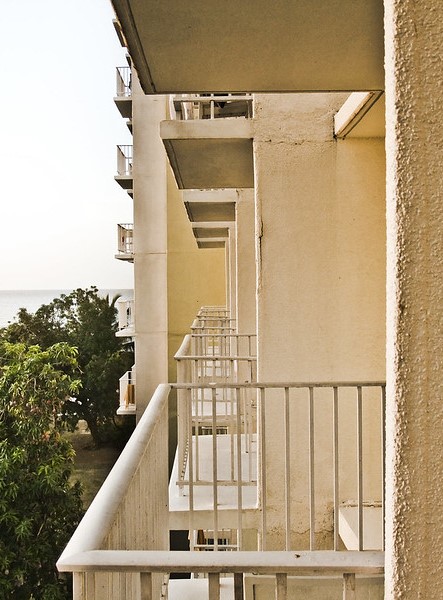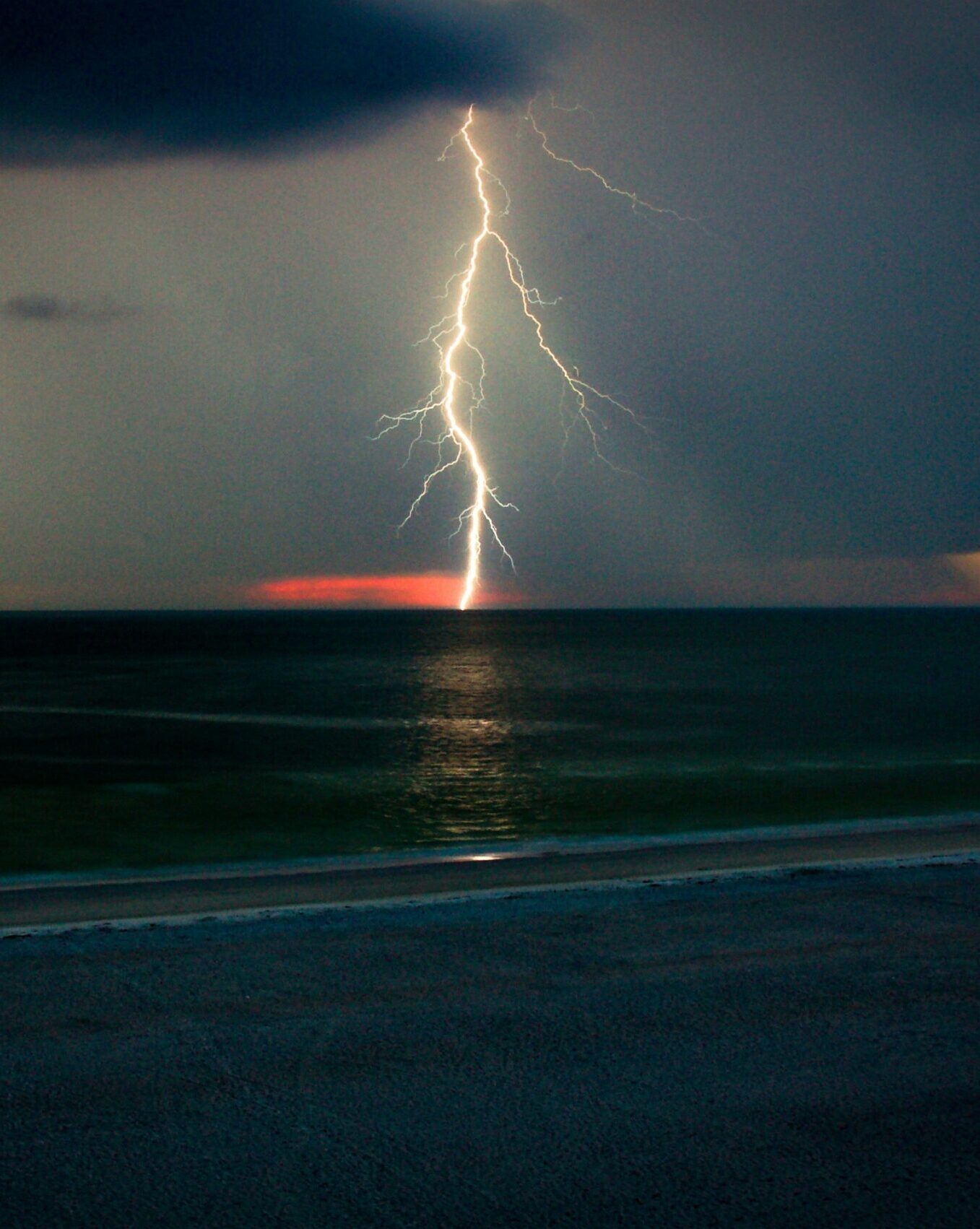By MONA KAREEM
Translated by SARA ELKAMEL

Farwaniya, Kuwait
“Darkness alone is in my voice.” — Jean Sénac
I am of darkness.
My nation is an aging butterfly,
the desert my prayer.
I wash in rain’s saliva.
In my supplications, the sun dances
on the tips of her toes.
*
My god is on the brink of death.
He lies beneath a violet echo;
he is a storm
well versed in gossip.
*
I arrived with a birth defect.
We were born twins: loneliness
and I.
I will give you a sad heart,
a gouged out eye,
a foot with twenty toes
among other organs
that my friend, time, gave me
for safekeeping.
*
My father sprouted amid growling rain showers,
between two moments of silence
birthed by the widowed sky.
When I took him on as a father,
he made me paper angels
I could easily beat
in a game of hide and seek.
*
My father was the earth’s first volcano,
and our balcony was the rain’s
epicenter. At the break of Eid day,
our balcony is a boat
of tears, sometimes sunk
by the children’s mayhem.
Our balcony is a life
that had abandoned the city
to inhabit a cauldron of imagination.
*
In our new house,
there is no balcony.
*
I saw the earth
pulling on new accessories
and I saw houses giving up their doors
to escape implication
in the parting of loved ones.
*
I saw cities abandoning their inhabitants,
carrying the train tracks
on their backs,
bidding the river farewell…
*
I sense blood slithering
through my veins.
I can sense pigeons playing cards
atop my head’s minaret.
*
Words need someone
to scrub them with soap;
they need looser clothes, and a passerby
who does not demand a smile.
*
In the light:
I see darkness,
I see my god,
I see time,
I see you…
*
But I do not see myself.
Mona Kareem is the author of three poetry collections. She has held fellowships and residencies with Tufts University, Princeton University, Poetry International, Arab-American National Museum, National Centre for Writing in Norwich, UK, and Forum Transregionale Studien. She is a recipient of a 2021 National Endowment for the Arts literary grant. Her work has been translated into nine languages, and appeared (in English) in LitHub, The Common, Brooklyn Rail, Michigan Quarterly Review, Fence, Ambit, Poetry London, Los Angeles Review of Books, Asymptote, Words Without Borders, Poetry International, English PEN, Modern Poetry in Translation, Two Lines, and Specimen. Kareem holds a Ph.D. in comparative literature from the State University of New York at Binghamton. Her translations include Ashraf Fayadh’s Instructions Within (nominated for a Best Translated Book Award), Ra’ad Abdulqadir’s Except for this Unseen Thread, and Octavia Butler’s Kindred.
Sara Elkamel is a poet and journalist currently based in Cairo. She holds an M.A. in arts journalism from Columbia University and an M.F.A. in poetry from New York University. Her poems have appeared in Poetry Magazine, The Yale Review, Michigan Quarterly Review, The Iowa Review, Gulf Coast, The Common, The Cincinnati Review, Poet Lore, Poetry London, Best New Poets, Best of the Net, among other journals. She is the author of the chapbook Field of No Justice (African Poetry Book Fund & Akashic Books, 2021).
“Room of Darkness” appears in Mona Kareem’s third collection, What I Sleep For Today (Nova Plus for Publishing and Distribution, 2016).
Photo by Flickr User limeabeans.




